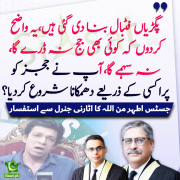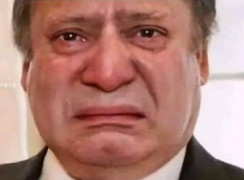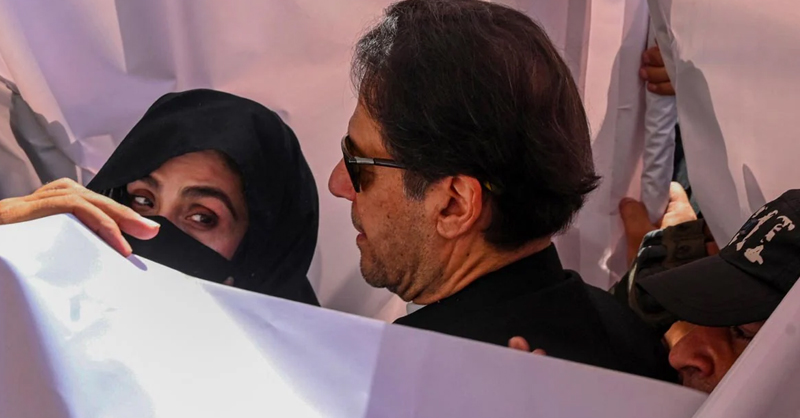The Prophet did not want any documents circulating other than the words of Allah, including documents attributed to him. So how was Hadith recorded? And what is the history of this documentation?
What does hadith say about hadith? In Sahih Muslim narrated on the authority of Abu Said Al Khudri, the prophet said “Don’t write about me and anything written about me other than in the Quran should be erased” and in the Sunnan of Al Tirmidhi also on the authority of Abu Said Al Khudri “We asked the Propher permission to write and he declined” and Ahmed Ibn Hanbal in his Musnad narrated from Abu Huraira said when the Prophet heard what they were writing he became angry and said “Books other than the book of God? Praise the book of God and be faithful to it”. Abu Huraira said we gathered everything we had written in one pile and set it on fire.
Then how do we still have so many hadith and hadith collections?
The thinker Ahmed Amin commented on this in his book "The Dawn Of Islam" Some scholars wanted to reconcile the conflicting Hadith, They said it was forbidden to write them when the Quran came down for fear that the Quran would be confused with the Hadith”. As always these "scholars" find some kind of justification. Just like the Catholic Church did in around 382 AD ( yes AD not BC ) which finalized the final version of the bible by adding and canonizing several books which today constitutes as the new testament. More than 300 years after the death of Christ. Starting to see a similarity here?
And if this was really the case, that hadith was only forbidden during the revelation of the Quran then why were the Sahaba and Khulifa Rashidun also against it? If they weren't there would be many hadith books during those times because people would scurry to record hadith while they were still fresh in people's memories and not wait two centuries later.
There are numerous accounts in history books that suggest that the refusal to write Hadith continued after the death of the Prophet, during the reign of the Caliphs, weakening the argument that the Prophet changed his mind and permitted the writing of his words beyond the Quran. The first Caliph Abu Bakr forbid writing the Hadith. Aisha the wife of the prophet narrated in Abu Dhahbi’s “The memorial of the Hadith masters” that Abu Bakr collected 500 Hadith of the Prophet then after one night of torment, he asked her to tell him the Hadith she knew and she did and then he gathered them and burned them. Aisha asked him why did you burn them? And he said “I feared that I would die with these words on me and they would be full of his words that I trusted but it would transpire that it was not what he said and I would have relayed them incorrectly”. This narrative is verified by Abu Bakr who has the least narrations of the Hadith of all the companions of the prophet despite him being the companion that was with him the most.
The Khalifa Umar ibn al-Khattab was more vehemently opposed to narrating Hadith than Abu Bakr. In a bid to restrict this, Ibn al Khattab consulted with the companions of the Prophet about writing the sunnah and the majority of them recommended it. After a month he said “If people of the book before you have written books alongside the book of God, they referred to it and neglected the book of God and by God I will not let anything rival the book of God” and he abandoned writing the book of Sunnah but Umar did not leave it at that, he also burnt the books that included Hadith.
In the "Restriction Of Knowledge" by Al-Khateeb it said that Omar Ibn al Khattab heard that certain books circulated among the people, he asked people to see these books so they assumed he wanted to read them, so they bought them to him and he burnt them. Omar forbid narrators from spreading Hadith. In “A Brief History Of Damascus” by Ibn Manzoor and “Beginning and End” by Ibn Katheer they mentioned that Ibn Al Khattab told Abu Huraira “They must stop this talk of the prophet of God or I will stomp them into the ground” and he told Ka’b “They must stop this talk or I will send them to the land of the monkeys” and in “the memorial of the hadith masters” of Imam Al Dhahabi he chronicled how Umar imprisoned three people: Ibn Massoud, Abu Al Dardaa and Abu Massoud Al Ansari. He said “You have talked too much about the Prophet of God” and in the ‘the book of guidance” of Abu Yali Al Khalili it mentions how Omar Bin Al Khatab imprisoned a number of people among them Abu Huraira and said “They told stories from the prophet of God” and they stayed in his prisons until he died.
Uthman ibn Afan was one of the most important of the prophet’s companions and he did not talk much about the prophet. In “the book of the major classes” by Ibn Sa’d he it is said Uthman ibn Afan stood on the podium and said “It is not allowed for anyone to narrate a Hadith that they did not hear in the eras of Abu Bakr or Omar, it did not prevent me from talking about the messenger of Allah not to be aware of his friends, I heard him say “Whoever says things I did not say has earned his seat in hell”
Sheikh Mohamed Abu Rayah said in his book “Shedding light on Mohammedan sunnah’ the Rashidun Caliphs and the close companions and scholars avoided and even feared narratives of the prophet, meaning that they know that they could recount what they heard from the prophet accurately. Muhammed Rashid Reda said of the Sahabis ‘they did not want the Hadith to become part of religion in the way the Quran was and had they understood that the prophet wanted that they would have written and gathered everything they had heard from the prophet and spread it among the people.
If the closest companions (Sahabis) of the Prophet's related so little from the Prophet as we have already pointed out, where did all the Hadith come from? The companions of the Prophet who talked most about the Prophet by Abu Hurairah and Aisha. What was the opinion of each other? According to the "Brief History of Damascus" by Ibn Manzoor that two men from Bani Amer met Aisha and said “Abu Huraira said that what brings down a house is women and horses” this angered Aisha and she responded “This is a lie and what brings suffering to Abu Qasim is what he said, this is what the people before Islam suffered from.” According to Aisha’s words Abu Huraira lied, when they met in person she accused him of making up hadith and instead of defending himself, he began to talk about her. In the book “ Fath Al-Bari the explanation of Sahih Al Bukhari” by Ibn Hagar Al Askalani “Aisha said to Abu Huraira , you narrate things about the prophet that I never heard from him so he told her, well you the mirror and makeup took you away from him while nothing took me away from him.”
Hadith as we have it today in reality was nothing more than a political tool than anything else, just the same as people use religion to further their dirty politics today.
The compiling of the Hadith which began late in the second century AH, before al-Bukhari and after the death of the companions and most of the followers, was ordered by the rulers of the Umayyad dynasty. Al Shehab Al Zohri was the first to compile Hadith and was forced to do so according to Ibn Abdul Barr’s book “the statement of science” he said “I hesitated until I was coerced to do it for the princes, so when I was coerced I did it for the people”. The Umayyad rulers continued to coerce narrators to codify the Hadith of the Prophet to cement their rule. The thinker Ahmed Amin said in his book " Dawn of Islam ": the rivalry between Ali and Abu Bakr, and between Ali and Muawiyah, and between Abdullah bin Zubair and Abdul Malik, and then between the Umayyads and Abbasids, all of this was a reason to compile a lot of hadith. " In his book “Shedding Light on the Mohamedan Sunnah, " Sheikh and intellectual Mahmoud Abu Rayya said, "Politics has entered into this matter and greatly influenced it. Hadith was used to support their rule and made it one of the strongest pillars to establish its construction.” This situation heightened during the era of Muawiyah, who used his influence and money to record it."
And till today hadith is used by holy men to keep their business of religion running. Remove hadith from the equation then you have a population of free thinking and free Muslims who follow only the book of Allah, not bound by laws made by 7th century rulers in the form of "codified" and "authentic" hadith to keep the population in check and solidify their rule on them.
And that's why there was not hadith during the time of the prophet, khulafa rashidun or sahaba. Because the prophet forbade it, the khulafa burnt it and the sahaba did not speak of it.
So why is it still we base 95% if not more of our religion on it? Anybody?
Edit : Wake up Pak taban
What does hadith say about hadith? In Sahih Muslim narrated on the authority of Abu Said Al Khudri, the prophet said “Don’t write about me and anything written about me other than in the Quran should be erased” and in the Sunnan of Al Tirmidhi also on the authority of Abu Said Al Khudri “We asked the Propher permission to write and he declined” and Ahmed Ibn Hanbal in his Musnad narrated from Abu Huraira said when the Prophet heard what they were writing he became angry and said “Books other than the book of God? Praise the book of God and be faithful to it”. Abu Huraira said we gathered everything we had written in one pile and set it on fire.
Then how do we still have so many hadith and hadith collections?
The thinker Ahmed Amin commented on this in his book "The Dawn Of Islam" Some scholars wanted to reconcile the conflicting Hadith, They said it was forbidden to write them when the Quran came down for fear that the Quran would be confused with the Hadith”. As always these "scholars" find some kind of justification. Just like the Catholic Church did in around 382 AD ( yes AD not BC ) which finalized the final version of the bible by adding and canonizing several books which today constitutes as the new testament. More than 300 years after the death of Christ. Starting to see a similarity here?
And if this was really the case, that hadith was only forbidden during the revelation of the Quran then why were the Sahaba and Khulifa Rashidun also against it? If they weren't there would be many hadith books during those times because people would scurry to record hadith while they were still fresh in people's memories and not wait two centuries later.
There are numerous accounts in history books that suggest that the refusal to write Hadith continued after the death of the Prophet, during the reign of the Caliphs, weakening the argument that the Prophet changed his mind and permitted the writing of his words beyond the Quran. The first Caliph Abu Bakr forbid writing the Hadith. Aisha the wife of the prophet narrated in Abu Dhahbi’s “The memorial of the Hadith masters” that Abu Bakr collected 500 Hadith of the Prophet then after one night of torment, he asked her to tell him the Hadith she knew and she did and then he gathered them and burned them. Aisha asked him why did you burn them? And he said “I feared that I would die with these words on me and they would be full of his words that I trusted but it would transpire that it was not what he said and I would have relayed them incorrectly”. This narrative is verified by Abu Bakr who has the least narrations of the Hadith of all the companions of the prophet despite him being the companion that was with him the most.
The Khalifa Umar ibn al-Khattab was more vehemently opposed to narrating Hadith than Abu Bakr. In a bid to restrict this, Ibn al Khattab consulted with the companions of the Prophet about writing the sunnah and the majority of them recommended it. After a month he said “If people of the book before you have written books alongside the book of God, they referred to it and neglected the book of God and by God I will not let anything rival the book of God” and he abandoned writing the book of Sunnah but Umar did not leave it at that, he also burnt the books that included Hadith.
In the "Restriction Of Knowledge" by Al-Khateeb it said that Omar Ibn al Khattab heard that certain books circulated among the people, he asked people to see these books so they assumed he wanted to read them, so they bought them to him and he burnt them. Omar forbid narrators from spreading Hadith. In “A Brief History Of Damascus” by Ibn Manzoor and “Beginning and End” by Ibn Katheer they mentioned that Ibn Al Khattab told Abu Huraira “They must stop this talk of the prophet of God or I will stomp them into the ground” and he told Ka’b “They must stop this talk or I will send them to the land of the monkeys” and in “the memorial of the hadith masters” of Imam Al Dhahabi he chronicled how Umar imprisoned three people: Ibn Massoud, Abu Al Dardaa and Abu Massoud Al Ansari. He said “You have talked too much about the Prophet of God” and in the ‘the book of guidance” of Abu Yali Al Khalili it mentions how Omar Bin Al Khatab imprisoned a number of people among them Abu Huraira and said “They told stories from the prophet of God” and they stayed in his prisons until he died.
Uthman ibn Afan was one of the most important of the prophet’s companions and he did not talk much about the prophet. In “the book of the major classes” by Ibn Sa’d he it is said Uthman ibn Afan stood on the podium and said “It is not allowed for anyone to narrate a Hadith that they did not hear in the eras of Abu Bakr or Omar, it did not prevent me from talking about the messenger of Allah not to be aware of his friends, I heard him say “Whoever says things I did not say has earned his seat in hell”
Sheikh Mohamed Abu Rayah said in his book “Shedding light on Mohammedan sunnah’ the Rashidun Caliphs and the close companions and scholars avoided and even feared narratives of the prophet, meaning that they know that they could recount what they heard from the prophet accurately. Muhammed Rashid Reda said of the Sahabis ‘they did not want the Hadith to become part of religion in the way the Quran was and had they understood that the prophet wanted that they would have written and gathered everything they had heard from the prophet and spread it among the people.
If the closest companions (Sahabis) of the Prophet's related so little from the Prophet as we have already pointed out, where did all the Hadith come from? The companions of the Prophet who talked most about the Prophet by Abu Hurairah and Aisha. What was the opinion of each other? According to the "Brief History of Damascus" by Ibn Manzoor that two men from Bani Amer met Aisha and said “Abu Huraira said that what brings down a house is women and horses” this angered Aisha and she responded “This is a lie and what brings suffering to Abu Qasim is what he said, this is what the people before Islam suffered from.” According to Aisha’s words Abu Huraira lied, when they met in person she accused him of making up hadith and instead of defending himself, he began to talk about her. In the book “ Fath Al-Bari the explanation of Sahih Al Bukhari” by Ibn Hagar Al Askalani “Aisha said to Abu Huraira , you narrate things about the prophet that I never heard from him so he told her, well you the mirror and makeup took you away from him while nothing took me away from him.”
Hadith as we have it today in reality was nothing more than a political tool than anything else, just the same as people use religion to further their dirty politics today.
The compiling of the Hadith which began late in the second century AH, before al-Bukhari and after the death of the companions and most of the followers, was ordered by the rulers of the Umayyad dynasty. Al Shehab Al Zohri was the first to compile Hadith and was forced to do so according to Ibn Abdul Barr’s book “the statement of science” he said “I hesitated until I was coerced to do it for the princes, so when I was coerced I did it for the people”. The Umayyad rulers continued to coerce narrators to codify the Hadith of the Prophet to cement their rule. The thinker Ahmed Amin said in his book " Dawn of Islam ": the rivalry between Ali and Abu Bakr, and between Ali and Muawiyah, and between Abdullah bin Zubair and Abdul Malik, and then between the Umayyads and Abbasids, all of this was a reason to compile a lot of hadith. " In his book “Shedding Light on the Mohamedan Sunnah, " Sheikh and intellectual Mahmoud Abu Rayya said, "Politics has entered into this matter and greatly influenced it. Hadith was used to support their rule and made it one of the strongest pillars to establish its construction.” This situation heightened during the era of Muawiyah, who used his influence and money to record it."
And till today hadith is used by holy men to keep their business of religion running. Remove hadith from the equation then you have a population of free thinking and free Muslims who follow only the book of Allah, not bound by laws made by 7th century rulers in the form of "codified" and "authentic" hadith to keep the population in check and solidify their rule on them.
And that's why there was not hadith during the time of the prophet, khulafa rashidun or sahaba. Because the prophet forbade it, the khulafa burnt it and the sahaba did not speak of it.
So why is it still we base 95% if not more of our religion on it? Anybody?
Edit : Wake up Pak taban



































